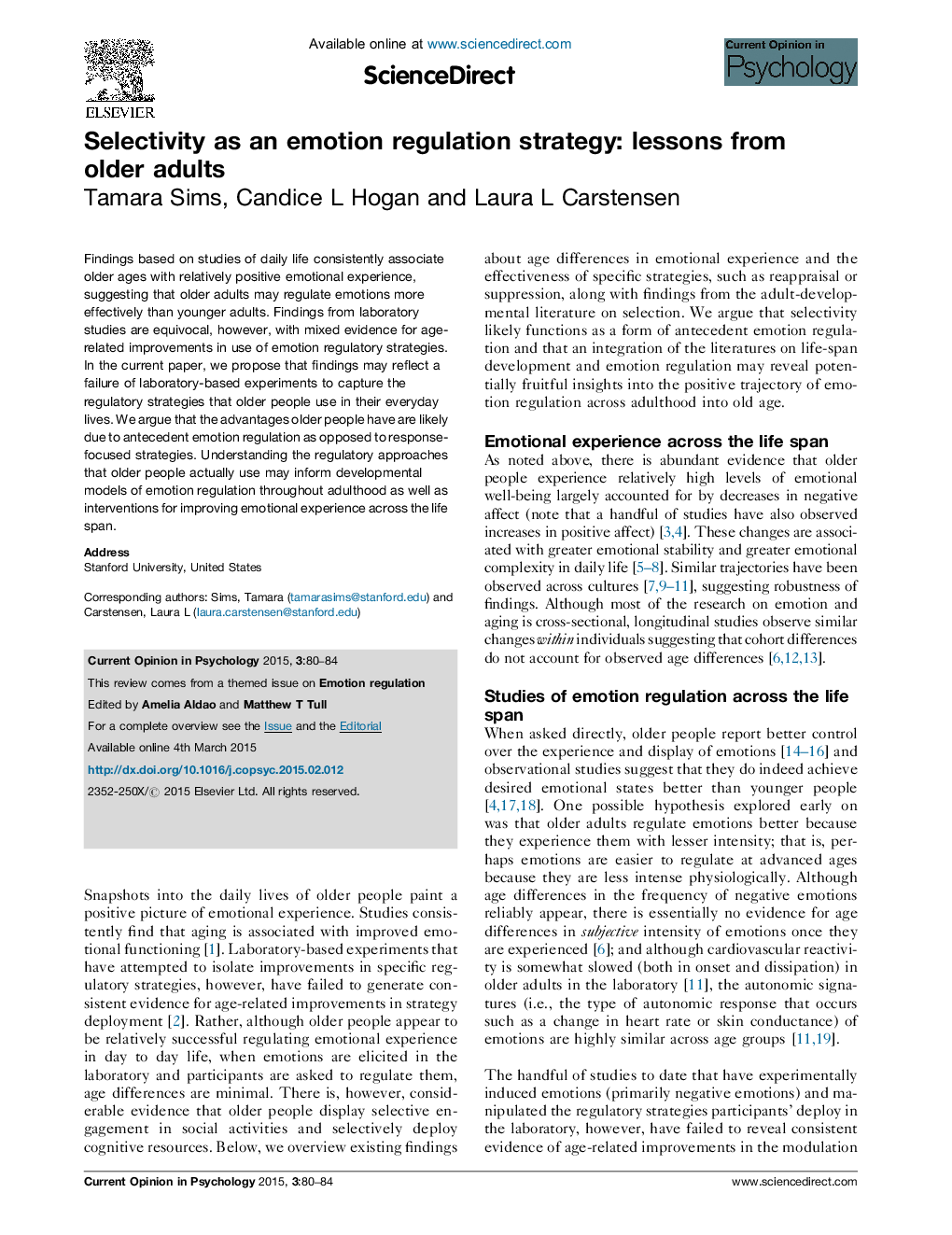| Article ID | Journal | Published Year | Pages | File Type |
|---|---|---|---|---|
| 879385 | Current Opinion in Psychology | 2015 | 5 Pages |
•Studies of daily life show improved emotional functioning as people age.•Lab studies show mixed evidence for age-related improvements in emotion regulation.•Older people use selectivity to structure social life and deploy cognitive resources.•Selectivity is an effective antecedent emotion regulation strategy for older adults.•Studies of selectivity in daily life can elucidate changes in emotion with age.
Findings based on studies of daily life consistently associate older ages with relatively positive emotional experience, suggesting that older adults may regulate emotions more effectively than younger adults. Findings from laboratory studies are equivocal, however, with mixed evidence for age-related improvements in use of emotion regulatory strategies. In the current paper, we propose that findings may reflect a failure of laboratory-based experiments to capture the regulatory strategies that older people use in their everyday lives. We argue that the advantages older people have are likely due to antecedent emotion regulation as opposed to response-focused strategies. Understanding the regulatory approaches that older people actually use may inform developmental models of emotion regulation throughout adulthood as well as interventions for improving emotional experience across the life span.
